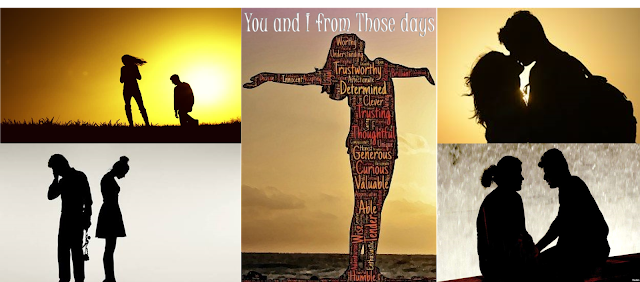Armenian opposition leader arrested
Armenian opposition leader arrested, but protesters rallyThe arrest at first seem to push the protesters back on their heels, but by evening they regrouped and held a massive rally in central Yerevan.
The Armenian authorities cracked down aggressively
Sunday on anti-government protests that have consumed the country over the past
week, arresting the protests' leader and temporarily throwing the movement he
led into disarray. But the protesters regrouped by evening, holding by far
their largest rally to date and showing that anger at the government showed no
sign of dissipating.
On the morning of April 22, police arrested
Nikol Pashinian, the member of parliament who has emerged as the unlikely new
hero of the opposition to longtime leader Serzh Sargsyan. Pashinian has been
the head of the protest movement that has energized the large majority of
Armenians fed up with Sargsyan's autocratic, sclerotic rule.
The protests had been conducted in a
decentralized fashion, with Pashinian going on daily marches around the city
and leading nightly rallies at the central Republic Square, while other
supporters carried out creative acts of civil disobedience around the city.
Nevertheless, the arrest of Pashinian seemed to
disorient the movement. The group that was with Pashinian when he was arrested
in Yerevan's Erebuni district marched defiantly toward the center of the city.
One young man burned in effigya stuffed Cheburashka, the Soviet cartoon
character to whom Sargsyan bears some resemblance.
But the marchers grew aimless after they were
blocked at several points by police, turning around repeatedly to retrace their
steps and at times walking in circles.
As they have in previous marches, the protesters
shouted “join us!” to the bystanders who lined the roads or looked out from
their apartment windows. This day, though, the cries seemed more insistent and
desperate. The mood on the march was notably more somber than on previous days.
“It's time to do something,” said one
sixty-something marcher, Serozh Garayan. “We need to get more people, and then
we will see what we can do.”
“It's clear” that momentum was lost following
Pashinian's arrest, said another marcher, fifty-something Karine Sargsyan.
“This is what they were counting on.”
By evening, though, a crowd of protesters
completely filled the central Republic Square and spilled over into the
surrounding streets. The mood was again festive, with groups circulating
holding massive banners in the Armenian flag tricolor to chants of “Armenia,
Armenia.” Young people handed out signs reading “I Am Nikol.”
It was a substantially larger crowd than the
rally the night before; one local estimate put it at 115,000 people. The police
had promised to break up any rally at the square but they did not follow
through on the threat.
Speakers set out a new agenda: the operating
slogan would no longer be “Reject Serzh” but “Victory.” “The people have
already rejected Serzh,” said one speaker, Ruben Rubinyan. “Serzh thought he
was a chess player, but he's a backgammon player who got a bad roll.”
Rubinyan called on protesters to carry on their
civil disobedience activities without Pashinian or other leaders. “I could be
arrested tomorrow,” he said.
Pashinian was arrested barely an hour after
meeting with Sargsyan in the morning at the Marriott Hotel on Republic Square.
The meeting – televised and attended by dozens of journalists – ended after
only three minutes when Sargsyan walked out, complaining that Pashinian was
presenting him with an “ultimatum” to step down. “This is not talks, not a
dialogue. It’s just an ultimatum, blackmail of the state, of the legitimate
authorities,” Sargsyan told Pashinian.
Sargsyan also ominously referenced March 1,
2008, when police violently broke up crowds of protesters against Sargsyan's
election, killing ten. “You have not learned the lesson from March 1,” Sargsyan
said.
Police also arrested two other members of
parliament who have been active in the protests, Sasun Mikaelian and Ararat
Mirzoyan, along with other organizers.
“The only way for them to deal with these
protests was to isolate the leaders and hope that the protests will grow
chaotic and that people would get demoralized,” Mikayel Zolyan, a political
analyst with the Yerevan think tank Regional Studies Center, told Eurasianet.
“You can isolate them but people are still going to go out on the street. Maybe
their actions will be less coordinated and effective. We still have to see how
that plays out.”
The protests began April 13, in opposition to
Sargsyan continuing his rule by moving from the presidency into the prime
minister's seat. He did so as the country adopted a new constitution changing
to a parliamentary form of government in which the prime minister, rather than
the president, is the most powerful figure.
YEREVAN - Armenia’s political turmoil deepened
on Sunday with the detention of anti-government protest leader Nikol Pashinyan,
shortly after Prime Minister Serzh Sarkisian stormed out of talks on the tenth
day of mass rallies against his rule.
Pashinyan and two other opposition politicians
“were detained as they were committing socially dangerous acts”, the prosecutor
general’s office said in a statement.
Armenian police earlier denied opposition MP Sasun Mikaelyan’s report
that Pashinyan had been arrested and his whereabouts are unknown.
As a lawmaker, he is protected by parliamentary
immunity and cannot be arrested without the approval of fellow MPs. It came
hours after Sarkisian stormed out of talks with Pashinyan on Sunday morning,
accusing him of “blackmail”.
The tense televised meeting in the capital
Yerevan between the premier and Pashinyan lasted only a couple of minutes
before the premier cut it short. Opposition supporters denounce Serzh
Sarkisian’s efforts to remain in power as prime minister after a decade serving
as president.
“I came here to discuss your resignation,”
Pashinyan, the leader of the opposition Civil Contract party, had told the
prime minister in front of the cameras. “This is not a dialogue, this is
blackmail, I only can advise you to return to a legal framework... Otherwise
you will bear the responsibility” for the consequences, replied Sarkisian, a
former military officer. “You don’t understand the situation in Armenia. The
power is now in people’s hands,” Pashinyan hit back.
Sarkisian said the Civil Contract party “can’t
speak on behalf of the people”, having scored only eight percent in a recent
parliamentary election, during the brief talks.
HUNDREDS DETAINED
Pashinyan then vowed to “step up pressure” on
Sarkisian to force him to resign and called on police officers to “lay down
arms and join in the protests”.
Bu instead security forces intervened using stun
grenades and began dispersing the crowd in Yerevan’s suburban Erebuni district.
Hundreds of people were detained at protest rallies held across Yerevan during
the day, police said in a statement, and seven protesters have sought medical
help, according to Armenia’s health ministry.
Armenia’s interior ministry said it took the
decision to “disperse demonstrators, including those assembled in Yerevan’s
Republic Square.”
“In order to perform these duties, police are
entitled to carry out arrests and use force. We urge protesters to comply with
these and other lawful demands of policemen,” the statement said.
But tens of thousands of protesters defied the
police warning and in the evening filled central Yerevan’s Republic Square, an
AFP journalist at the scene reported. “By beating up people, the authorities simply
can’t change the situation in their favour. Too many people don’t trust
Sarkisian. The genie is out of the bottle,” a 32-year-old protester, Sona
Petrosyan, told AFP at the rally.
Another young protester who didn’t give his name
said: “We will gather here every day and hold peaceful rallies until Serzh
Sarkisian resigns.” The US embassy in
Yerevan urged “the government to show restraint to allow for peaceful protest
and... those exercising their freedom of assembly to do so responsibly, to
avoid violence, and to prevent an escalation of tensions”.
“A peaceful resolution requires meaningful
political dialogue in good faith,” the embassy said in a statement.
The EU delegation to Armenia issued a statement
expressing “concern” over the rapidly unfolding crisis. “The European Union
reiterates that it is crucial that all parties show restraint and
responsibility and urgently seek a negotiated solution,” the statement said.
Opposition supporters have criticised the
63-year-old leader over poverty, corruption and the influence of powerful
oligarchs. Pashinyan had earlier announced the “start of a peaceful velvet
revolution” in the landlocked South Caucasus nation of 2.9 million people.
He called for a nationwide campaign of “civil
disobedience”, urging civil servants “to stop obeying Sarkisian”. Under a new
parliamentary system of government, lawmakers elected Sarkisian as prime
minister last week.




Comments
Post a Comment